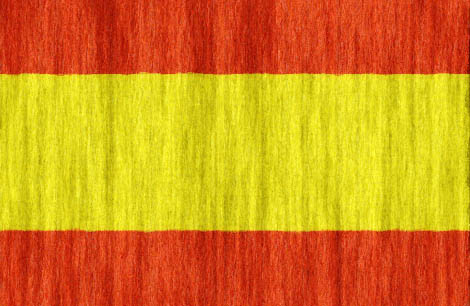AFP
Dressed in mourning black, Spaniards commemorated yesterday their country’s deadliest peacetime attack, a decade to the day since Al Qaeda-inspired bombers blew up four packed commuter trains and killed 191 people.
Relatives of those killed on the trains, which were carrying rush hour passengers from Madrid’s suburbs when they exploded on March 11, 2004, hung garlands of white daisies and released 191 white balloons in the city’s Retiro park.
“That day lies branded in all our hearts,” said Angeles Pedraza, leader of the Association for Victims of Terrorism, who lost her daughter Miriam in the bombings. “Every day the pain is greater ... every year is harder because of this eternal pain, which I know will stay with us for the rest of our lives.”
Earlier, victims’ relatives and officials filled the pews in the city’s Almudena Cathedral for a memorial mass, amid doleful organ music and incense smoke.
King Juan Carlos embraced leaders of victims’ associations at the cathedral door.
The archbishop of Madrid, Antonio Maria Rouco Varela, told the congregation that the victims “died and suffered, and we suffer, because there were some who with blood-curdling premeditation were willing to kill innocent people”.
After the attacks, however, “love triumphed over hate and life over death”, as Spain rallied round to help the victims, he added.
The series of shrapnel-filled bombs detonated around 7.40am on packed trains headed to Madrid’s main Atocha station, killing 191 people and wounding about 2,000.
Spanish courts eventually sentenced 18 people for the bomb attacks. Two of the convicts received jail terms of nearly 43,000 years each.
The seven chief suspects committed suicide on April 3, 2004, by blowing themselves up in an apartment near Madrid, also killing a police officer.
On the eve of the 10th anniversary, Interior Minister Jorge Fernandez Diaz said that Spain still “forms part of the strategic objectives of global jihad. We are not the only ones but we are in their sights”.
Since the day of bombings, 472 suspected Islamic extremists have been arrested in Spain and the authorities’ current alert level indicates “a likely risk of attack”, he said.
The Madrid train bombings changed the immediate course of Spanish politics after Al Qaeda said they were a punishment for Spain’s role in the US-led invasion of Iraq.
The then-prime minister Jose Maria Aznar’s conservative government had immediately blamed the armed Basque separatist group ETA – a move that cost him dear in a general election three days after the bombings.
Voters handed an unforeseen victory to Socialist Jose Luis Rodriguez Zapatero, who governed until the conservative Popular Party won power again in 2011.
Some victims complained of how officials handled yesterday’s commemorations.
“This ceremony has been for the politicians, not for us,” said one survivor, Adeniria Moreira, 48, after going up to lay her flowers in the park. “We had to go up last, when we should have been first. It was the same in the mass. It is a shame to treat victims that way.”
Others, still traumatised by the attacks. could not bear to attend the ceremonies.
Antonio Gomez, a 48-year-old bank computer specialist, was in a train at Atocha when bombs detonated, leaving him with a broken leg and chronic post-traumatic stress disorder.
“The fear is always with you,” he told AFP ahead of yesterday’s commemorations.
Bunches of white and red flowers hung on the railings in a street by the rail track near where one of the trains exploded.
A man living nearby, Evaristo Ruiz, 47, recalled seeing the street covered in medics’ tents.
“It was traumatic for Madrid, and for Spain, and for this neighbourhood in particular,” he told AFP. “It was 10 years ago, but it wasn’t far away.”

